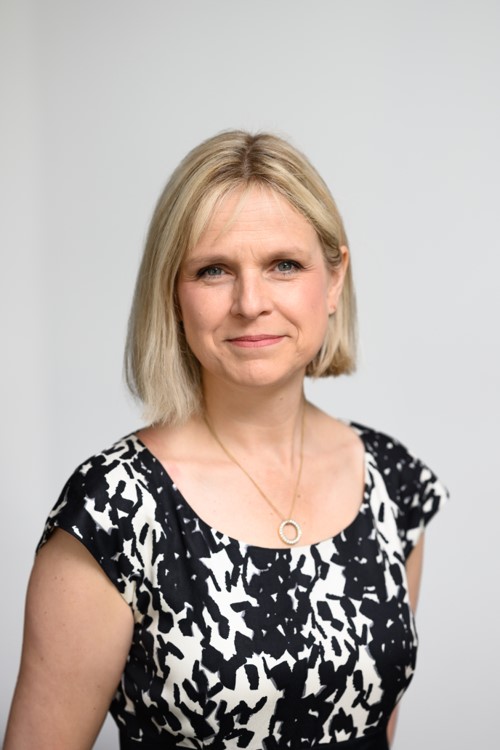Meet Kathy Abernethy, Director of Menopause Services at Peppy. Peppy is an app that gives people access to remote, specialist advice and support in areas such as mental wellbeing, menopause, parenthood and fertility. Read what Kathy has to say on measuring clinical outcomes, finding the right people to work with and the value of hearing personal feedback from clients.
Tell us about your innovation – what and why?
Peppy is a digital healthcare company connecting people to human experts who are professionals in their field. I’ve been a menopause specialist in the NHS for over 30 years. Time and time again, people have said “I wish I could have accessed you earlier, you’ve been great,” but only a small number of people could access me in my clinics in the NHS.
Peppy aims to enable anyone to access information that is evidence based, relevant and personal to them. Anyone might use Google, but what you find isn’t specific to you and how do you know whether it can trusted.
I represent the menopause part of Peppy, but we also cover men’s health, women’s health, fertility and early parenthood. The point is to be there in those times that really matter. I firmly believe that menopause care should be available to all, and I can make it available to so many more people through this medium of the digital app.
What was the ‘lightbulb’ moment?
Peppy started when one of the founders had a health issue and really struggled to find the information that he needed to help himself. He thought, if I’m struggling, other people will be as well. When I came in, my clinical experience told me that this was an area where there’s a lot of information in the NHS, but it’s not easily accessible. So for me, the light bulb moment was when I realised I could translate everything I knew and make it available to so many more people than I could just by working in a clinic.
Which AHSNs are you supported by?
We were supported by the Health Innovation Network and DigitalHealth.London on some of the menopause programs that we did. Through this support, we improved the breastfeeding rate above the national population rate, which can be an issue for health, but also one of the things we were measuring as an outcome was postnatal depression and we reduced that by a third during the time of the pilot.
What’s been your toughest obstacle to date?
The toughest obstacle for me personally was learning to adapt from the pace of change in the NHS to the fast pace of the startup. It was enlightening that you could look at your practice, reflect on it and within a week or two, you could change it if it wasn’t working. Having come from the NHS, where it takes quite a long time to make changes, that was quite a challenge for me.
Organisationally, it was making sure that we had the right staff at the right place. We couldn’t deliver this service without the right nurses, and I was key in recruiting nurses who have been properly trained and educated around menopausal health or the other topics we cover.
What are your hopes for the future?
My aspiration is that everybody can access that personal care that they need and that we will complement the work of the NHS. We don’t try to compete with the NHS, but we know that they can’t offer everything to everybody, and I aspire to be able to fill that gap. So it’s really to make things like Peppy available to absolutely everybody.
What’s the best part of your job?
For me, the best part is seeing that it works. My clinical experience told me that people would access care in the moments that matter, but the best part is actually seeing it happen and hearing personal feedback from clients. “You’ve literally saved my life,” is what one person said to us. Somebody else said, “my daughter says to tell you that you’ve given me her mum back.” Things like that are really rewarding.
As a clinician, I also wanted to measure clinical outcomes. We started using a validated menopause rating scale right from the beginning and now we’re able to look back and see that we’ve got validated clinical feedback too. We have improved the troublesomeness of menopause symptoms and that’s clinically significant and really rewarding. And the best thing of all is that it’s free at the point of use because we encourage employers to pay for it.
Can you give us some advice for budding innovators?
Find the right people to work with. I wasn’t one of the founders of Peppy, but I came in very close to the beginning. They had the skills they needed to get the business going; I was the person that came in and had the clinical know how. And so it’s finding the right people that’s really important.
I think also make sure it works. I had a theory that this would work and that people would value it but I couldn’t deliver a tech product myself. My expertise was clinical. It took teams of others to make sure that what I was promising would actually be delivered.

The government has set out three shifts it wants to see happen: treatment to prevention, hospital to community, analogue to digital. HealthTech has a crucial role in supporting the delivery of all three. But using technology to help deliver these changes requires procuring the technology, and when all the noise is about there being no [...]

Dr Anish Bhuva, is the founder of Pace MRI, a Consultant Cardiologist at Barts Heart Centre and an Associate Professor at University College London. Tell us about the innovation. What does it do, how does it help, who does it help and why is it important? Pace-MRI is an award-winning digital tool that manages complex [...]

As we celebrate International Women’s Day, Anna King, Commercial Director at Health Innovation Network South London, identifies how FemTech is 'Accelerating Action' in UK healthcare and driving economic growth. In recent years, FemTech - the sector focused on women’s health and wellness technology - has gained significant traction globally. In the UK, this growing sector [...]









